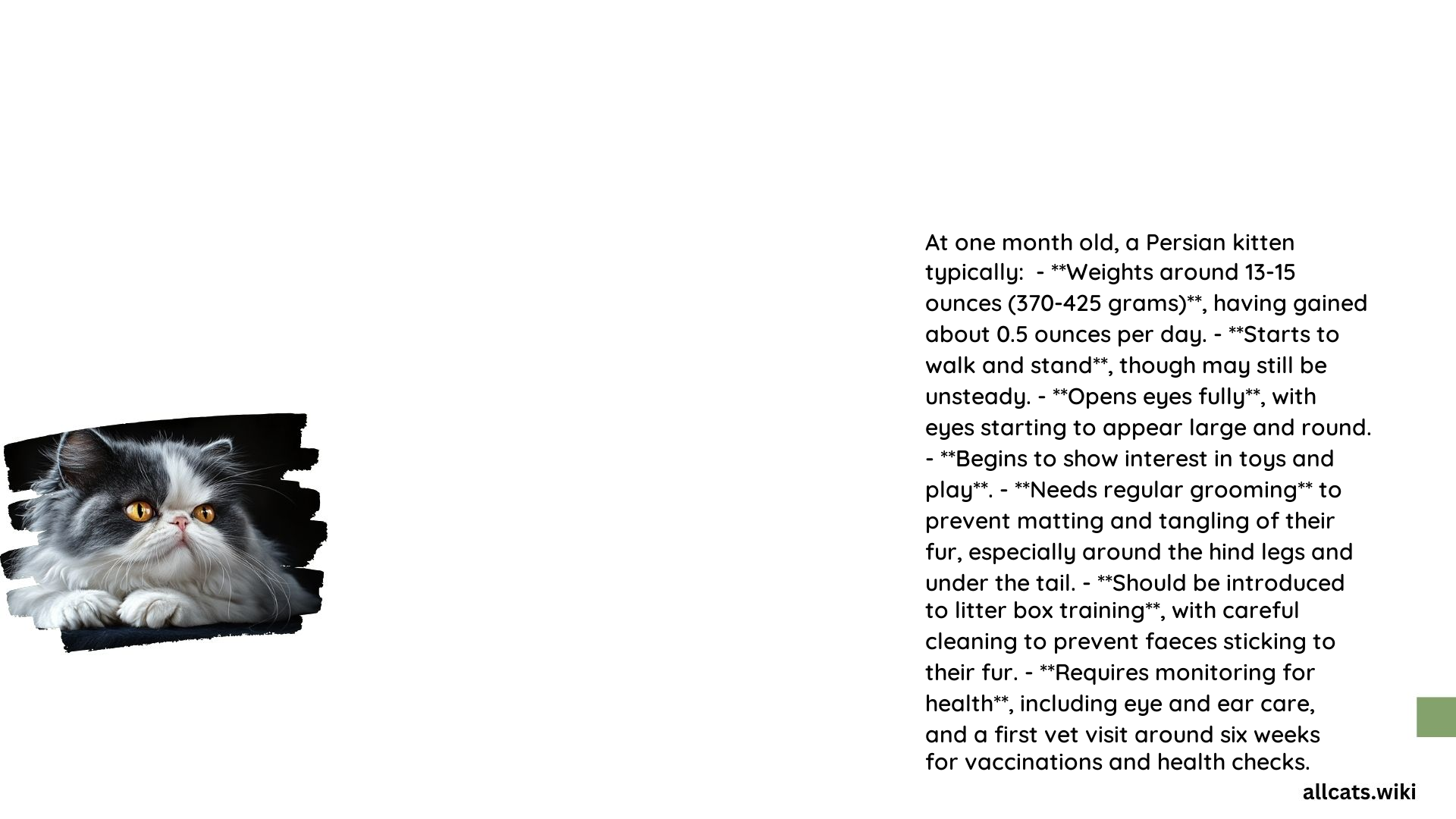Comprehensive Guide for Persian Cat Owners: One-Month-Old Kitten Care
A one-month-old Persian kitten is a delicate and rapidly growing bundle of joy that requires attentive care and nurturing. As a Persian cat owner, understanding the unique needs of your kitten during this crucial stage of development is essential for their health and well-being.
What is the Average Weight of a One-Month-Old Persian Kitten?
At one month old, a typical Persian kitten will weigh between 250-350 grams. This range is within the normal growth pattern for kittens, as they experience a significant increase in weight during the first few weeks of life.
What is the Feeding Schedule for a One-Month-Old Persian Kitten?
At this young age, Persian kittens are still heavily dependent on their mother’s milk or a high-quality kitten formula if they are being bottle-fed. The recommended feeding schedule for a one-month-old Persian kitten is as follows:
- Frequency: Kittens should be fed every 3-4 hours, around 6-8 times a day.
- Nutrition: If the kitten is not nursing, a nutrient-rich kitten formula should be used. Consult with your veterinarian to determine the best formula and feeding schedule for your kitten.
What is the Typical Behavior of a One-Month-Old Persian Kitten?
At one month old, Persian kittens exhibit the following behaviors:
- Eating and Sleeping: Kittens at this stage eat and sleep frequently, as they are still developing their motor skills and spend most of their time resting and nursing.
- Eye Development: By around 10-14 days, Persian kittens’ eyes start to open. At one month, their eyes should be fully open, and they should be able to see their surroundings.
- Motor Skills: Kittens start to sit up and may begin to crawl and move around more actively, although they are still unsteady and may not be able to walk or climb effectively.
- Social Interaction: Kittens begin to interact more with their littermates and may start to play, although this is still limited at one month old.
What are the Common Health Issues in One-Month-Old Persian Kittens?
One-month-old Persian kittens can be susceptible to several health issues, including:
- Infections: Kittens are prone to infections, especially if they are not receiving proper care or if their mother is not healthy. Keep an eye out for signs of illness such as discharge from the eyes or nose, lethargy, or loss of appetite.
- Dehydration: Ensure that the kitten is getting enough milk or formula to stay hydrated. Dehydration can be a serious issue in young kittens.
- Parasites: Kittens can be born with or acquire parasites such as fleas, ticks, or worms. Regular checks and preventative measures are crucial.
- Respiratory Issues: Persian kittens, due to their flat faces, can be more prone to respiratory issues. Monitor for signs of difficulty breathing or wheezing.
By understanding the unique needs and common health concerns of a one-month-old Persian kitten, you can provide the best possible care and ensure a smooth transition into their next stage of development.
References:
1. Untamed: “How much do Persian cats weigh? Get all the facts!”
2. Purrinlot: “Persian Kitten Development Stages – the first 12 weeks of a kitten’s life”
3. Bond Vet: “Kitten Growth & Development: First Year Milestones”

